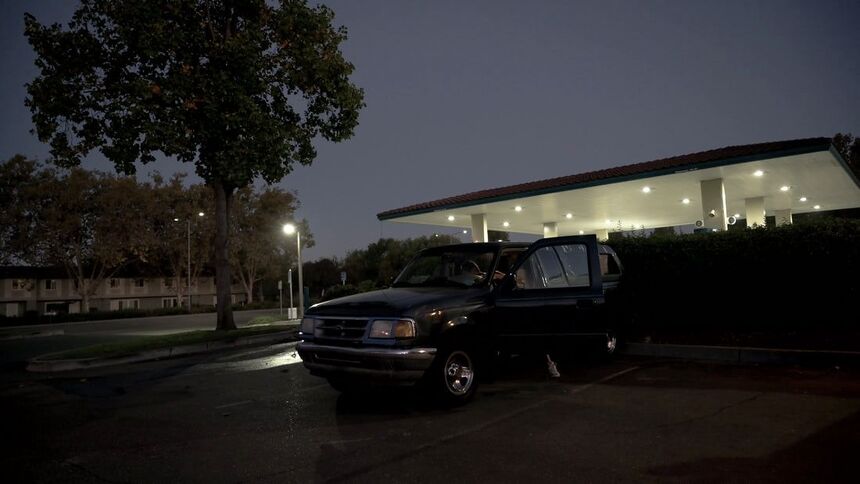 Early morning at Casa de Arnoldo Early morning at Casa de Arnoldo A few months ago, Arnoldo told me that someone had stopped by his truck and helped him fill out his US Census forms. "That's good, right?" he asked. "Yes! That's very good," I said. I had been meaning to make sure he'd been counted, but someone beat me to it. For the last year, I've been filming Arnoldo in a short documentary I'm making, called This Adventure Called California. He was labor trafficked right here in the Bay Area, and the film is following his emotional journey to recover and reconcile with his family. He lives in his truck, and it turns out that the person who helped Arnoldo with the Census was not a diligent Census worker, as I assumed, but Willis Reuter, an outreach worker for an organization called CityServe of the Tri-Valley. In addition to registering unsheltered people for the Census, CityServe provides a ton of critical services to the community --including helping people with resumes and employment searches, and assisting with housing, legal aid, and case management. In short, they provide a safety net for vulnerable people who might need food, counseling, a ride to the doctor, a job, or a shoulder to cry on. There are so many ways that our current society is failing its citizens --lack of affordable health care, housing, safe streets, quality education, trustworthy law enforcement...I could go on... so I'm grateful for organizations like CityServe who are stepping up to help. 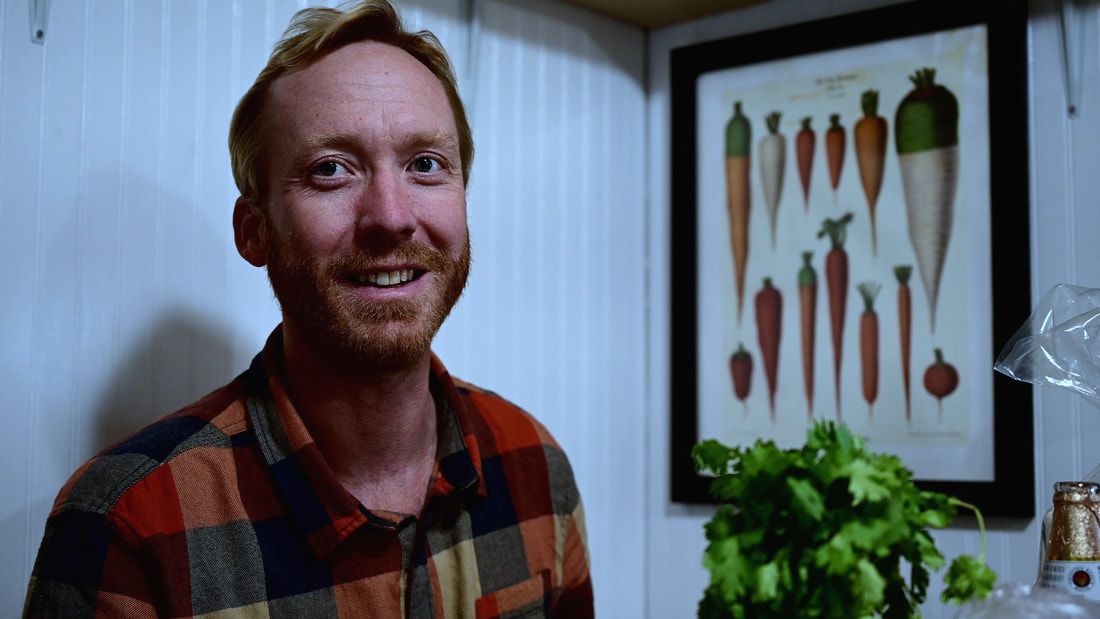 Willis Reuter, intrepid outreach worker at CityServe of the TriValley Willis Reuter, intrepid outreach worker at CityServe of the TriValley Willis remembered that Arnoldo is a painter, and introduced him to Carol and Craig, his in-laws, who happened to need their home painted. I've been wanting more footage of Arnoldo at work, and Carol and Craig generously let me come with my camera. It turns out, they live on a ranch. A real ranch. As I packed up my gear, I got texts from Willis: "There will be goats and cows roaming around freely. And we got a new puppy, Waffles, that might greet you. Oh, also, the goats might jump on your car... And the llamas are friendly, they won't spit on you." !!!! After spending most of the pandemic in my home office, living life through screens, this was beyond exciting. Goats! Llamas! Puppies! But this is one of the greatest things about this work -- getting to enter different corners of the earth, and meet the fascinating people who live there. And in this case, dwarf Nigerian goats! 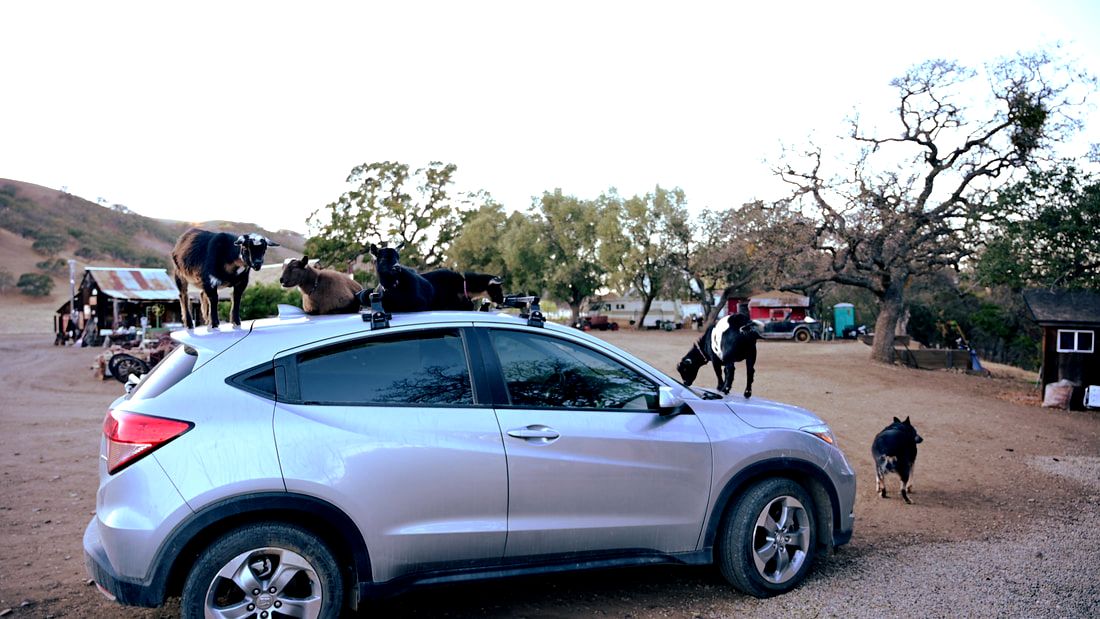 I don't think I can properly convey the cuteness, hilarity, and enthrallment of these goats. Named Rachel, Phoebe, Toast, Grits and Gravy, they were like a little pack of puppies. They were curious and unafraid of me, a new visitor, who had all kinds of tantalizing straps, cords, and cables to chew on. If I set off at a pace, they followed me. They tasted my fingers and my ponytail, and Arnoldo took a photo of a hoof print on my shoulder. (In truth, I feel like that could be a dog print too, because Waffles was super friendly as well.) And while they were uninterested in my car, the goats clearly felt very comfortable scaling Willis' vehicle, and making themselves at home. Everywhere I turned on this ranch, there was something intriguing, historic, beautiful, or thought provoking. Willis and his partner, Ariel, kindly invited me to a cookout they were having with Arnoldo that evening. Arnoldo made carne asada and charro beans, and I learned more about Willis' work. One of his projects is simply compiling a database of services available in the area, and it's been a challenge. Because of the aforementioned societal failings, a patchwork of services has developed, provided by different government agencies, nonprofits, and churches. But even identifying and navigating these services is nontrivial -- some might provide only to residents of the county, others only to minors, another to low income residents, others to seniors. So it's not always simple when members of Willis' team try to refer their clients to help. Hence, Willis' database. One thing that impresses me is that Willis goes to where the need is. He found Arnoldo in his truck, in the parking lot of a shopping plaza. I have tried to connect Arnoldo with various services since I met him, but most of them require Arnoldo to make a phone call or a visit, and some have curtailed services during the pandemic. And mostly, Arnoldo doesn't call, for all kinds of reasons. I certainly don't blame agencies for choosing how they spend their limited resources, and for expecting people to take some initiative in their own self care. But not everyone is in a position to do that. While it's exponentially more time and labor intensive to be out in the community, finding the people who have fallen through the cracks, that's exactly what Willis and CityServe are doing. When I imagine doing this work, approaching people who are living on the street or in their cars, who may have mental illnesses, be addicts, or have other issues and vulnerabilities, it seems scary, and potentially dangerous. But it doesn't faze Willis. He had a difficult childhood, with violence in his home. No child should have to live through that, but it uniquely prepared him for this work. "Sometimes, the honesty makes more sense than the plastic smiles of the corporate drones" that he left behind at his last job, he says. So often, in hearing the stories of people who've lived through trauma and violence, we think of them "overcoming" their pasts, or leaving them behind. But Willis is framing it in a different way --using his past as his secret superpower that lets him enter situations with a deeper level of understanding, resilience, and wisdom. And he says the work is therapeutic for him, too. I find this so inspiring, to think that survivors can potentially leverage their trauma into a hard-won advantage. As the traditional time for feasting and gathering is upon us, I am reminded that this year will be difficult for so many -- people who will be lonely, who won't have enough to eat, and who may not have a job as we move into a winter with more shutdowns and disease looking likely. So I'm especially grateful for people who dedicate their lives to helping those who are overlooked or forgotten, and who remind us that we can work together in very tangible ways to make life better for everyone. That was probably my last shoot with Arnoldo -- I already have a rough assembly of the documentary, and it's already too long! (Stay tuned in early 2021 for more information about it's release.) But I'm so glad I got the chance to visit this beautiful place, with people who are doing good work, and to receive the attentions of puppies and dwarf Nigerian goats. -Jennifer Huang
0 Comments
Last winter, a friend's daughter's friend got in touch with me. She had seen The Long Rescue's Indiegogo campaign and was interested in interning! Lucy was available during her summer break from, drumroll please: NYU film school. Wow. Yes! It was too good to be true... but Lucy Brillhart did in fact come back for the summer, looking all New York chic. Not only has she been helping out with the film, but she has also filled me in on important topics. Like the fact that kids today don't use Facebook, email, or the phone, they communicate through Snapchat and Instagram. Talk about a visually attuned generation... So to get to know her a little better, we asked her some probing questions. I love that she chose strong women as her inspiration, and that her favorite sandwich has gravy. I have to admit, the film that inspired her at the tender age of 14 is definitely not what I expected. So... Heeeere's Lucy! What's your favorite sandwich? My favorite sandwich is probably the open face roast beef sandwich with gravy. There used to be a wonderful restaurant in downtown Livermore that had a cafeteria style set up where I could order this sandwich. I would love going there with family or friends. If you could invite any three people to dinner, living or dead, who would they be and why? The three people I would invite to dinner would be Frida Kahlo, as she is my artistic inspiration, Eleanor Roosevelt, as she was a great political source of influence during a time in which women's rights were changing, and my Great Aunt Elisabeth, as I was named after her. Where are you from? I was born in a suburb outside of Chicago, but moved to the Bay Area when I was around five years old. Now, I mostly reside in New York City as I am attending college at New York University. How did you get interested in film? As long as I can remember I have been inventing stories. When I was twelve years old I starting writing a book; however, frustrated with the limitations of that particular medium I switched to writing the story in script style. And since, all of my stories have been told in script form. What are some of your favorite films or TV shows, and what inspires you? The TV show Pushing Daisies sparked my interest in dark comedy, and Netflix's Orange is the New Black furthered my inspiration of Emmy award-winning drama. However, my biggest inspiration was Kill Bill:Vol. 1. When I was 14 years old my dad gave me a copy of the dvd to watch on my laptop once everyone else in the house was asleep. At the stroke of midnightI feel in love with Tarantino's twisted style of humor, and I knew that film was the artistic medium that I was searching for. Why are you interested in working on The Long Rescue? I feel a lot of compassion for the situation that the girls at My Refuge House are in, and by helping with this documentary I am in some small way be making a positive difference in their lives. What have you been working on so far? So far I have been editing the Thank You Videos for the donors, as well as setting as social media outlets for the documentary. What other projects are you working on? I am currently in the process of writing a script for a short film, as well as advising casting for a web series that will be shot in New York CIty later this year. What is your dream film project? My dream film project is any length feature film where I am the producer. What do you do to relax? I love to read books, sit on my front porch with friends, play cards with my family, or curl up and take a nap with my cat. Where do you hope to be in five years? I would like to happily employed, or attending grad school to obtain my masters. I've been kind of MIA lately, burning the midnight oil to prep for my indiegogo campaign which I've soft-launched today. Doing crowd funding is such a great concept, but in practice it puts together all of my phobias --taking the stage, asking my friends and family for money, being open about my needs and dreams. It's all very insomnia making. But I am so humbled and blown away by people's generosity. My friend Yuki, who was the first to donate. My friend Diana, who is starting up a business and doesn't have extra piles of cash exactly lying around, third to donate. And of course my friends Liz and Dan, who not only introduced me to my husband Doug, but have seen me in some of my lower points in life -- donated. I feel very undeserving, and also like I have a lot to live up to. It's true what they say, that the crowd funding creates a community, because I feel like I owe it to every person who donates to make every penny count. When looking for perks, I remembered Equal Exchange, a great organization that works with local farmers around the world to make organic, fair trade chocolate, coffee, tea, nuts, etc. It's really high quality product, and so I gave them a call thinking I might get a bit of a discount. They did me one better, and are donating chocolate for the campaign! I mean, it actually tastes even better than it looks, if you can believe it.
This is all part of what it means to be a documentary filmmaker these days. I thought it was about filming and editing, but so much of the stuff that happens around the outside of that --the fundraising, the relationships, the approaching of scary, famous people, the searching for a photo of yourself that you don't hate to post around the internet --that's just as important. I am thinking about doing a podcast about the journey of a first time filmmaker. I don't know, would that be interesting to you? |
Categories
All
|

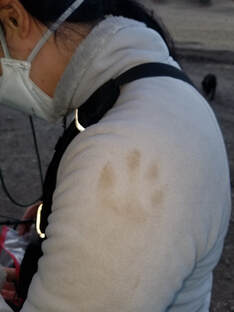
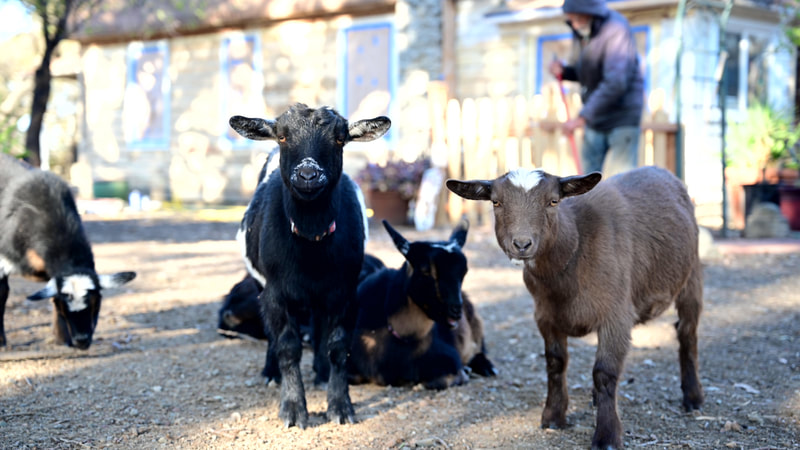
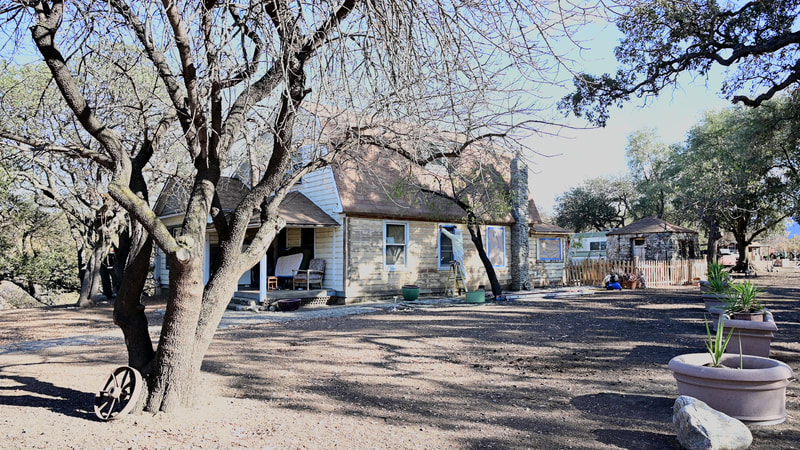
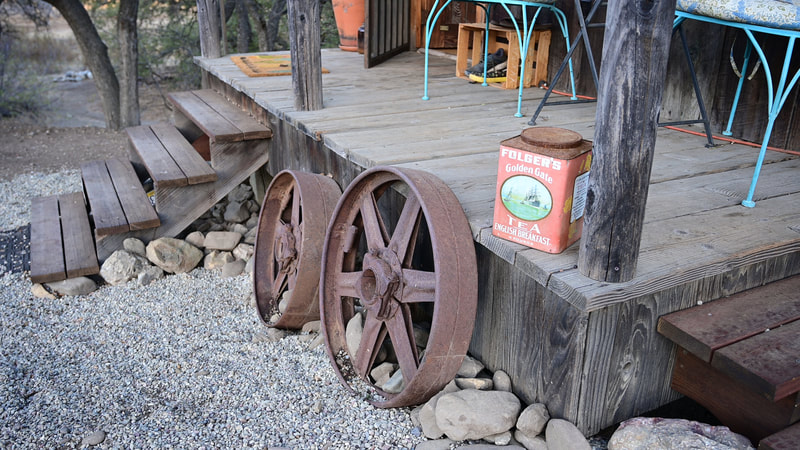
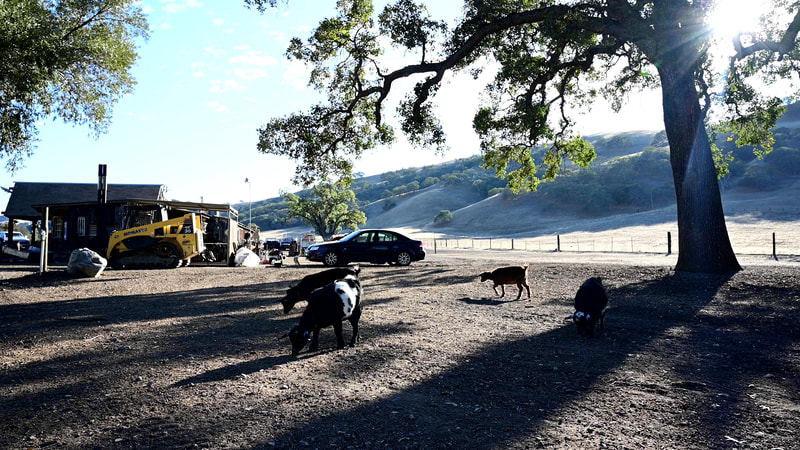
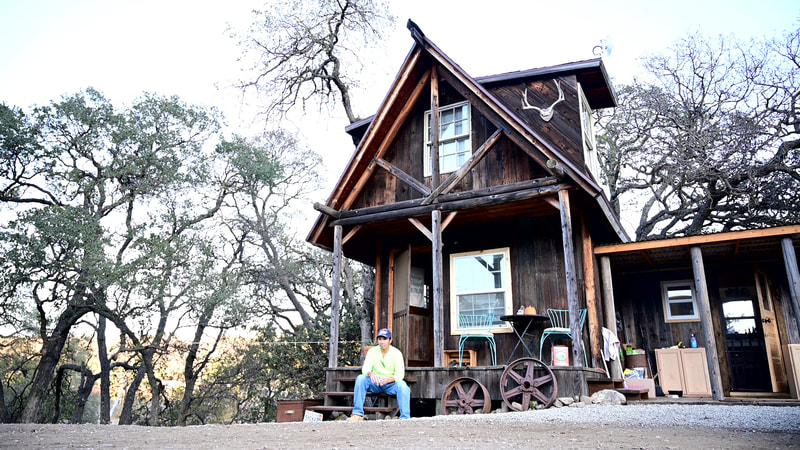
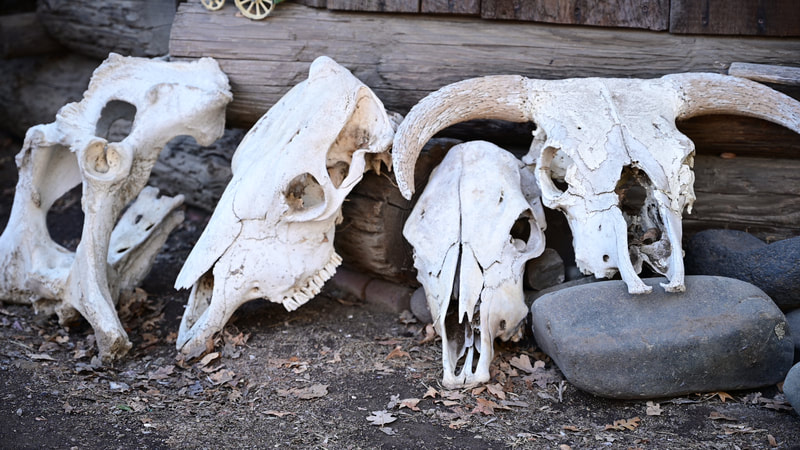
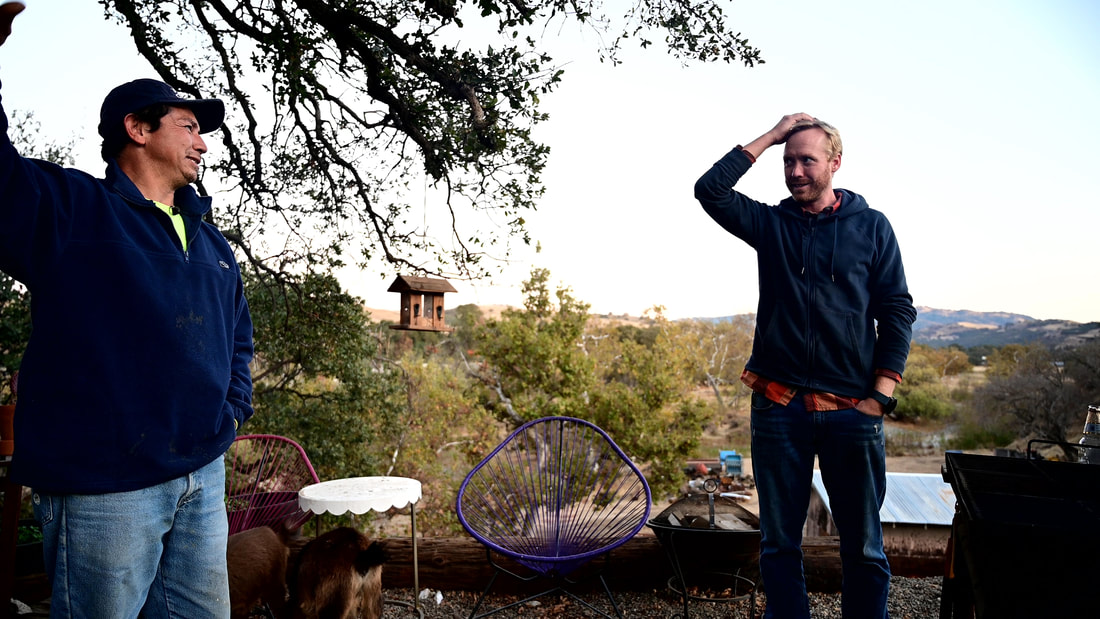
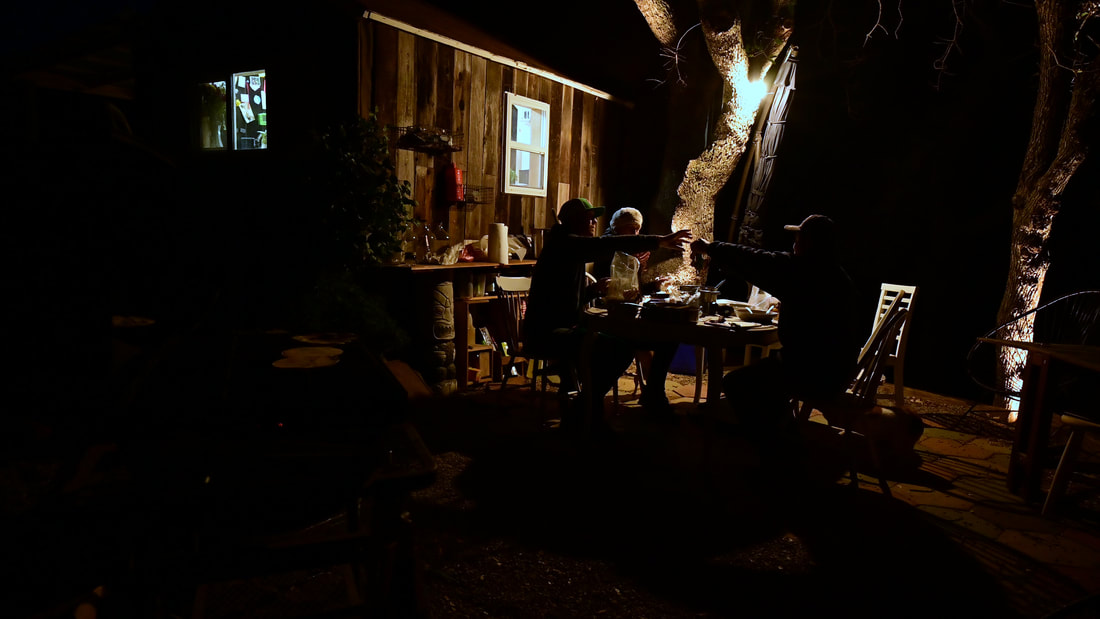
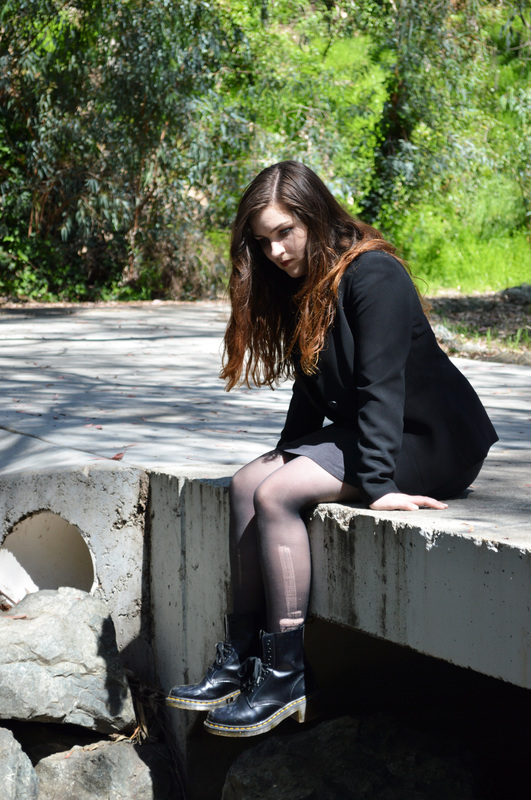

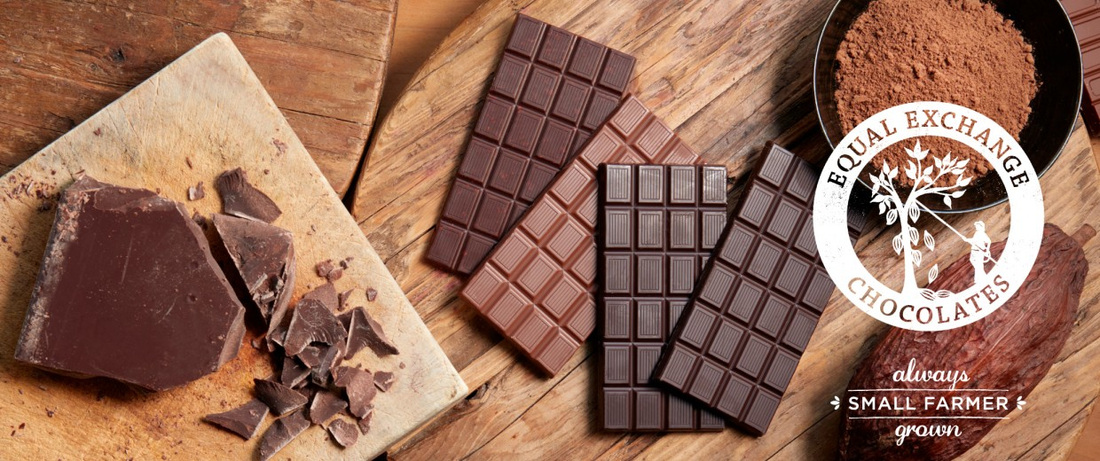
 RSS Feed
RSS Feed